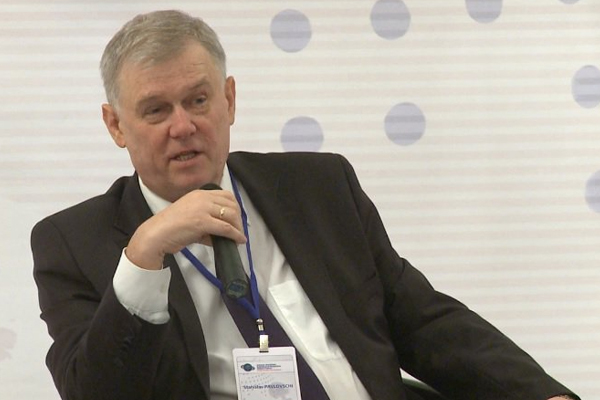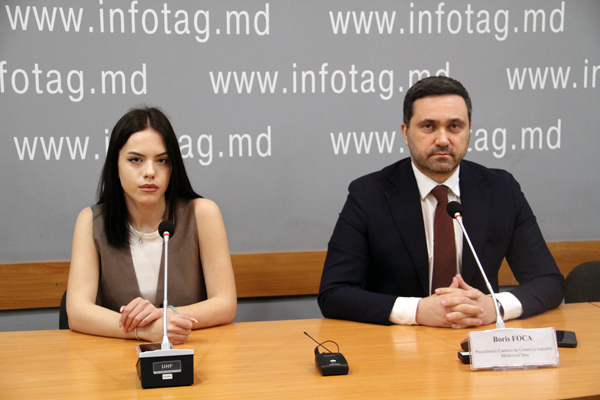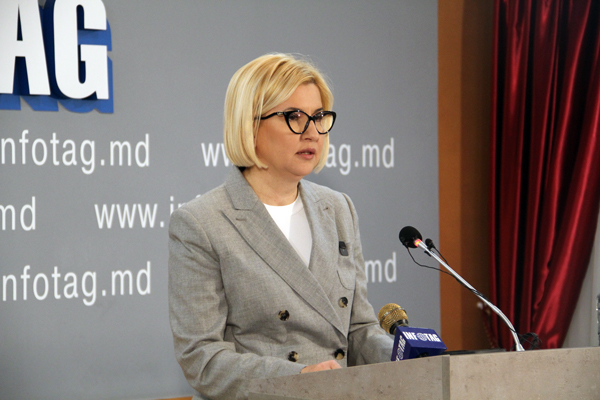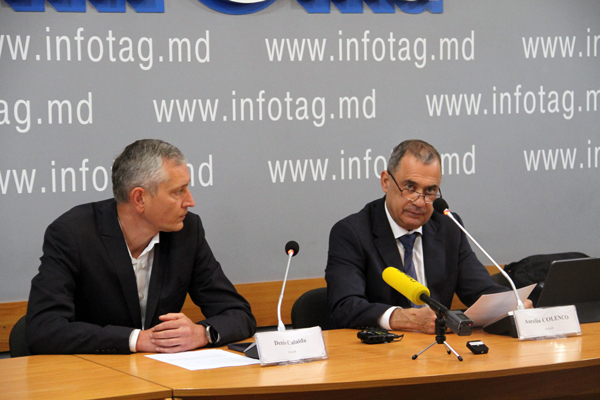Interview
STANISLAV PAVLOVSCHI: THE JUSTICE REFORM WAS AN ATTEMPT BY THE AUTHORITIES TO REPLACE SOME JUDGES WITH OTHERS

Former judge from Moldova at the European Court of Human Rights Stanislav PAVLOVSCHI told the news agency INFOTAG about his vision of the justice reform, pointing out the causes of the crisis in the justice system and possible ways to overcome it.
"INFOTAG": Mr. Pavlovschi, the ruling Party of Action and Solidarity (PAS) proclaimed reform of the justice system as one of its priorities. But recent events in the courts (mass dismissals of magistrates at will) indicate the resistance of the system. How would you characterize this situation?
Stanislav PAVLOVSCHI: The intentions of the authorities are, as always, good, because the Moldovan legal system has long needed reform, but the question is how to do it. How to change the situation so that the justice system would be effective on the one hand, and human rights would not be violated on the other. This is the wisdom of statesmen. However, the path that has been chosen by the leadership of the country is not the path of reform. It is the replacement of judges and prosecutors, who compromised themselves by cooperation with the regime of former Democrats’ leader Vlad Plahotniuc with those who are loyal to this power. In my opinion, this is the biggest mistake the authorities made.
When we talk about reform, we don't mean replacing some officials with others. This is not a reform, but a redistribution of spheres of influence between the clans. In my understanding, the reform means the deepest structural changes in justice and administration of justice.
The key trend in all of this is the return of citizens' trust in the legal system. From this point of view, I do not see that the ruling PAS Party in any way informed the public that the system has been studied and there are such-and-such flaws and bottlenecks. Nothing of the sort has been done.
Saying that citizens' trust in the legal system should be restored doesn't show the specific problems of the courts and prosecutors' offices. I think it is not too late to do this now. The main thing in this case is the will to achieve the establishment of a truly legal system which is subject to the requirements of a democratic state. But do the current authorities want this kind of change? This is a big question.
"INFOTAG": To what extent is it true that there is a corporate cohesion of judges, a semblance of clans that pursue certain goals within certain institutions of the state? Is this phenomenon present among Moldovan judges and prosecutors?
S. P: The situation of the clans is not constant, it changes. There are various factions, with ties of kinship and along party lines. Added to this are professional ties (people who studied at the same college in the same country) and mafia connections. These are different types of relationships. Now that the Superior Council of Magistracy (SCM) is practically dead, and in the Supreme Court of Justice (SCJ) almost all the judges have resigned, the problem of clans is not so relevant.
I am convinced that as soon as, for example, the SCJ is re-staffed, some sort of "interest groups" will emerge there as well. I think that most of the magistrates will play on the ruling party's team. This is an assumption, quite logical from the practice of the last few decades. But now the other thing is relevant. Who will come to the Moldovan courts and play the first fiddle there?
Those who are coming are the ones who must return the trust of the people to justice! Those who pretend to sit on the Supreme Court panels must be familiar to the population. That is, you cannot claim to be trusted by the citizens if you are not known to them as an individual. Judges must be recognizable. On the other hand, they must not only be familiar to the public, but also have a reputation for honesty and decency. Among the mandatory requirements for new judges are, of course, professionalism and incorruptibility.
When I hear that there are no such people in Moldova and that "everyone is corrupt", I assure you that this is not true. From all population in the country there are 20-30 decent and competent lawyers. Only these new judges may not be supporters of PAS. And the authorities will have questions about them.
As it is shown after all these so-called "competitions and selections", the rulers of Moldova want to see their own, controlled figures from the ranks of justice in courts. The authorities want to "push through" them in every possible way. But I remain a reasonable optimist and I believe that sooner or later they will understand that not always party interests can be placed above the interests of society. They must be subordinated to the will of the citizens, not the other way around.
"INFOTAG": After a four-year break, the General Meeting of Judges finally took place. However, the judges almost immediately took a time-out until April 28. What do you think of the meeting’s results?
S. P.: Those who call it a "lockout" are deceiving. Judges didn't want to play by the rules they were trying to impose. In this case, they showed some integrity. The main reason for the pause is that they are waiting for the results of the Pre-vetting Committee's evaluation of the candidates for the positions in the SCM. That makes sense. How can you vote for someone when tomorrow the SCJ will cancel all Pre-vetting and vetting! In a situation of uncertainty, you have to wait for certainty and then vote. I think the judges are right in this case.
"INFOTAG": In your opinion, how will the conflict between the authorities and the judiciary end in Moldova?
S. P: The judicial system will win. Because the authorities are acting in a clear conflict with the principles promoted by the European jurisprudence. The main one is the independence of the judiciary. And the ruling PAS majority unreasonably acts contrary to this basic requirement. On the other hand, judges, who have been subjected to external evaluation and have not passed it, refer to the "unpredictability of the law," that it is a law "not clearly formulated." In addition, requirements have come up that didn't exist before and the like. And in this case, I agree with them. The Moldovan authorities (before this inspection began) should have analyzed these normative acts for compliance with the principles of predictability. It was not done, and now the authorities have an obvious and personally created problem. And they are trying, as usual, to overcome it heroically.
"INFOTAG": Is an efficient and fast "reset" of judiciary possible in general, and how should it happen?
S. P: It is possible, but the problem is different. In Moldova, we still have not identified the problems in the justice system that need to be solved. And such a "reset" when they change "yours" for "ours" can be done in an hour. But it would have nothing to do with judicial reform. Again, reform means identifying shortcomings and proposing measures to eliminate them. This and only this should be the focus of the efforts of Moldovan leaders. And replacing one with another is a profanation.
"INFOTAG": How realistic is it in Moldova today to blackmail judges? And to dictate certain decisions and verdicts to them?
S. P.: It is very real. Yes, the judge enjoys a certain independence, but each of them has a husband or wife, a daughter or son, or nephews. And if the state and the operative services set themselves such a goal, they will certainly find something. This is wrong, but in Moldova there are no obstacles to this practice.
I have the impression that our operative bodies simply recruit some prosecutors and judges as their agents. And this is despite the fact that the law expressly prohibits such activities. I observe this situation and see the nuances as a specialist. And if this is the case, it is an absolute disaster for the Moldovan legal system.
"INFOTAG": Thank you for the interview!
























Add Comment